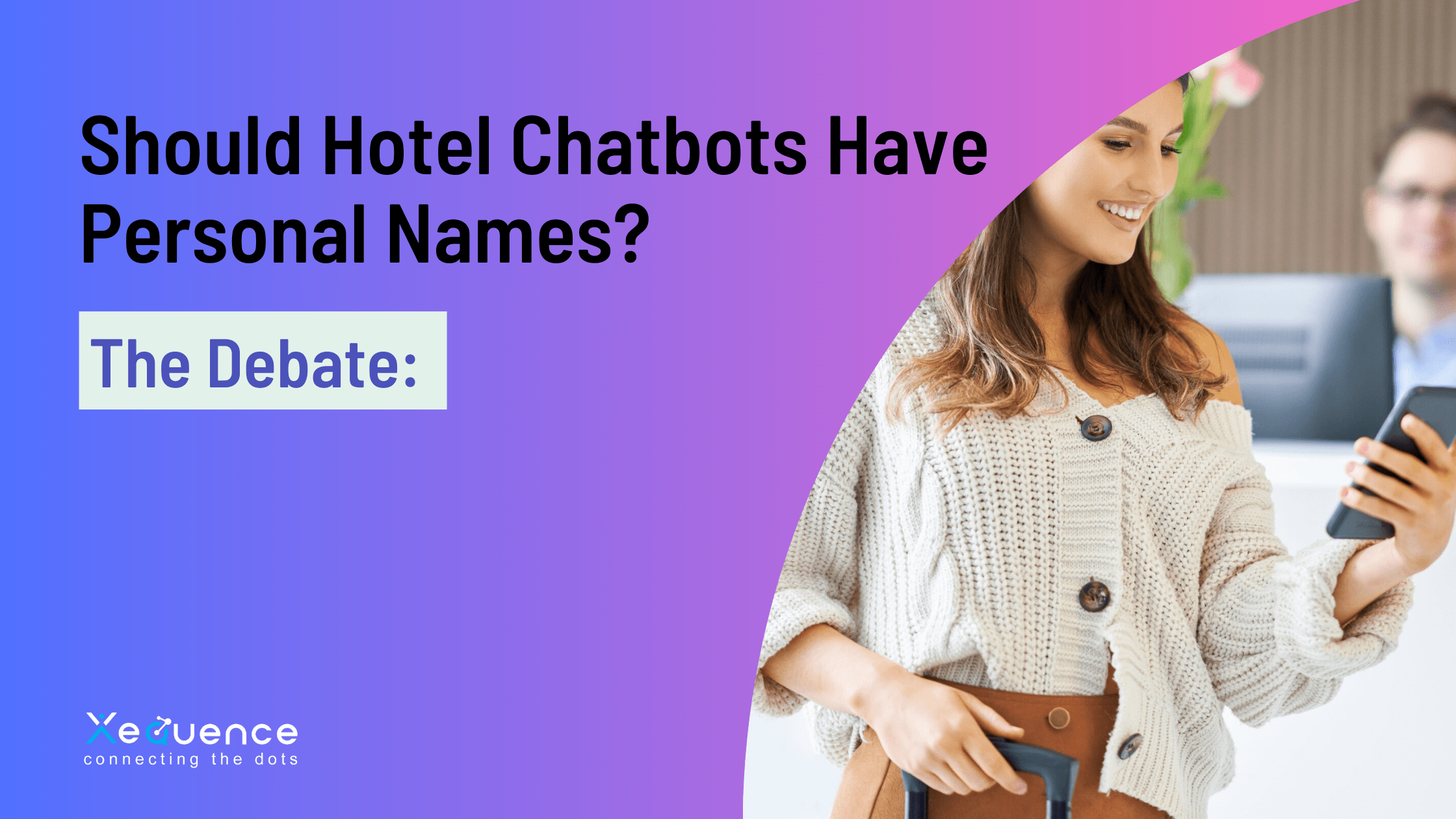- Home
- Artificial Intelligence
- The Debate: Should Hotel Chatbots Have Personal Names?
The Debate: Should Hotel Chatbots Have Personal Names?
- October 29, 2024
- Suraj Kumar
- Artificial Intelligence, Chatbot

Should Hotel Chatbots Have Names? | Pros & Cons for Hoteliers
Over the past few decades, the hospitality industry has undergone profound transformations, and these improvements include chatbots which have been found to be critical in improving guest experience. The virtual assistants do not only aid in the smooth running of operations but also provide assistance within the shortest time possible at all times. With the increase in use of this technology within the hotel industry, one question emerges does it make sense to name their chatbots? We will find out the answer to this question and also explore how it affects and motivates the user.
What is the value of giving a name?
A chatbot can be defined as an interactive tool that bridges or connects two parties including the hotel and visitors. When you begin a chat with a bot one of the first things that you see is the name, with no exception for the rest. This is the same way when one calls out for a robot to act as the front office manager or customer service representative, their instance get very much robotic for lack of a better word.
Why should one name the chatbots?
At hoteliers, the chatbots should be named for their beloved customers. Their user friendly interaction is always prioritized. They should be named because of the following mentioned reasons:
Making The Experience More Human:
It captures the essence of assigning a name to a chatbot to make it sound or appear very human. Research has shown that guests are more likely to use chatbots that have names that are attractive.
Bringing the way of the Feeling of the Presence:
The existence of an image of the bot in the minds of the users impacts their relationship positively, especially when the bot has a name. For instance, one would expect that most people would find it easier to use a chatbot named Alice or Bella than one that does not have a name. This can encourage people to interact, thus making the experience better for guests.
Enhancing Interactions to a Guests Individual Profile:
With the name, the guest tied to the chatbot hotels can engage with the guest more purposefully. A named chatbot can welcome clients in a specific manner, tell them who has already come back, remember all queries, and have many other features.
Naming Tendencies of Chatbots
Welcoming users by reframing the reality of the environment is not the only thing that goes into the naming of chatbots. There are broader societal movements that this one complements. The industries of UK Hotels are predominantly female since 56% of working personnel in industries are women. In this case data presented by HiJiffy indicates that as much as 63% of hotel chatbots are branded included consist of females with the popular female names being Alice, Eva and Julie. It may be gratifying to such guests that an entity of such character helps in enhancing a warm and welcoming atmosphere.
Conversely, there are only around 33% of chatbots that will have names like Bob or Henry. Gender stereotyping in naming is most likely due to hospitality as a service that is offered and heavily focuses on the woman figure her nurturing and caregiving, skills.
What effects do Chatbots have in the Hospitality Industry?
There is no doubt on the effectiveness of application of artificial intelligence in use of chatbots where service levels are maintained while staying within cost. Assist with the following activities which enhance the guest experience;
Booking Management:
Booking management is useful in bringing a hotel within the reach of the customers through making prior reservations.
Answering FAQs:
Almost all customer services have certain FAQs which can easily be handled through a chat at the desk.
Personalized Recommendation:
This includes the kind of attractions restaurants and events present in the locality and suggesting them according to the preferences of the guest.
Conclusion
Hospitality management chatbots are given some labelling for branding reasons and not for mere aesthetic appeal. Naming the chatbot assistant positively influences that user into feeling that there is a person behind the interaction making it easier there for the user. Many hotels in the very recent times have been able to witness a big interest and therefore this trend of naming hotspots will become more important than it is now. The effectiveness of bots usage in hotels will definitely be with the use of names because hoteliers know the value of a name. Consequently, this will help in dealing with the communication aspect since the primary function of chatbots will to facilitate more interactions therefore enhancing the experience of the guests.
Recent Posts
Newsletter
Get regular updates on data science, artificial intelligence, machine
You may also like

AI Travel Assistants: The New Personal Travel Planners

5 Things an AI Travel Assistant Can Do in Seconds

How AI Hotel Chatbots Reduce Operational Costs?




